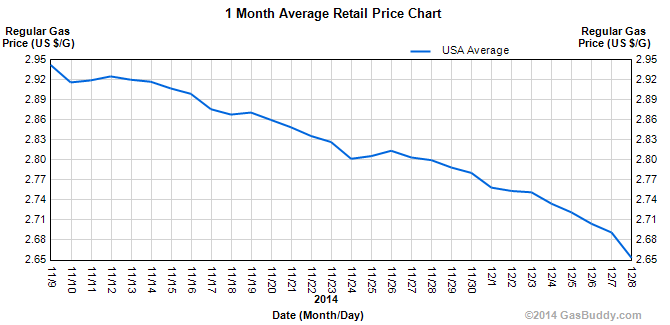As oil and gas prices have plunged in recent months, economists have heralded the likely benefits — and potential risks — of those sharply lower fuels prices. One rule of thumb, for example, holds that every one-cent drop in gas prices translates to $1 billion more in consumers' pockets, money that's available to be spent somewhere besides the filling station.
The ripple effects of fuel price fluctuations may be broader than you realize — and they could even extend to the value of your home, according to a new paper published last week by the Climate and Energy Economics Project at the Brookings Institution.
Related: Falling Gas Prices Could Provide $40 Billion Boost to Economy
The study found that a 10 percent increase in gas prices can swing housing prices by a range of 2.5 percentage points, or about $13,500, with the effects varying by location.
“Households adjust to changes in gasoline prices via their choices of vehicle, where to live and work, and mode of transport. Communities adjust through investments in infrastructure and housing supply,” the study’s authors, Adele C. Morris of Brookings and Helen R. Neill of the University of Nevada Las Vegas, wrote. Understanding these shifts, they write, is important to understanding the impact of energy and environmental policy.

The researchers looked at more than 930,000 home sales in and around Las Vegas between 1976 and 2010. They found that the higher gas prices raised the value of properties close to the city center or near major roadways by as much as $5,600. The average home value in other areas, like some outer suburbs, fell by $7,850. Most homes in the mid-city saw only small changes of $500 or less.
The study also found that the sensitivity of home prices to gas prices has fallen significantly since 1976, a change that the researchers say may be due to the 70 percent increase in average fuel economy of new cars sold in the U.S. over the 35-year period they studied. And property locations in or around the city didn’t perfectly predict how home values would respond to gas prices.
Related: Will Cheaper Oil Burn Tesla?
Still, the research might still be worth keeping in mind the next time you’re looking to buy a home.
“These results suggest gasoline prices may be affecting credit risks, property markets, and household wealth in ways the economic literature has so far not fully recognized,” the authors wrote. “While some studies have found that in general gasoline prices are not significant determinants of home values and foreclosure, our results suggest that there may be significant location-specific risks within metropolitan areas.”
Top Reads from The Fiscal Times:





